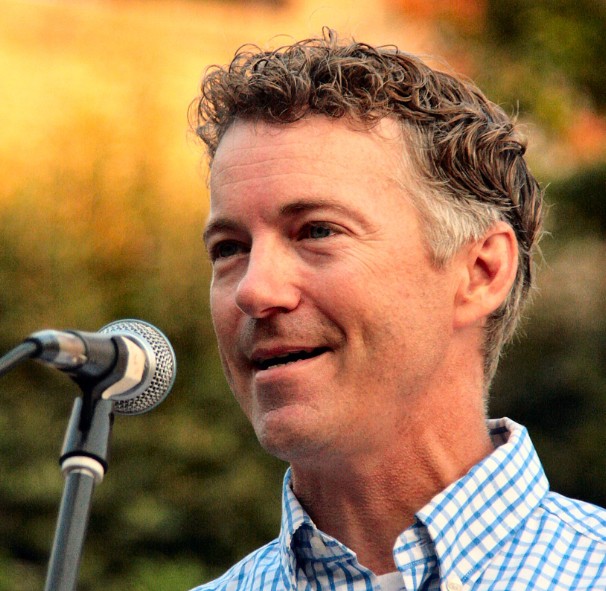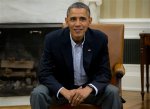Is it possible to talk about a global Islamic war against Christians while also praising Islam as an exemplary faith that could end such intolerance? Moreover, what Republican would think it wise to say this in front of a large group of Christian conservatives?
Videos by Rare
Senator Paul’s (R-Ky.) speech to the 2013 Values Voters Summit in Washington, D.C. on Friday outlined how a minority of Muslims – Islamic extremists who still number in the tens of millions – have been violently targeting Christians, particularly in the Middle East. Paul provided many gruesome examples of why Christians and Muslims should never blind themselves to the realities of radical Islam. But he also honored the richness of the true Muslim faith and its relevant history, even crediting the people of the Middle East for America’s founding era,” noting “Islam carried the light of enlightenment for centuries. They paved the way for our enlightenment.”
Paul told of Islamic extremist violence against Christians, “In Syria, Islamic rebels have filmed beheadings of their captives – they’ve filmed themselves eating the heart of their enemy, these rebels are allies of the Islamic rebels that President Obama is now arming. Does that make any sense at all? Americans tax dollars should never be used to fund prop up a war on Christianity”
After discussing the need to end foreign aid, he cited why military intervention won’t work, saying several times that it’s going to require Islam to police Islam. Paul argued “we must also re-examine our policies – because military action can enable and empower Islam.” Paul extolled the virtues of Muslim culture and history, “Islam needs to remember and recreate the good in their history – for centuries the Middle East was home to cultural and intellectual centers of ancient world tolerance and sophistication were the norm at one time… there was a time in history when Islam was policing itself, most Muslims describe Islam as a peaceful and tolerant religion”
Paul would add, “Christians should prepare for war but actively seek peace.”
However, comedian Dean Obeidallah saw Paul’s speech in a different light. Obeidallah, a Muslim, wrote a scathing article at The Daily Beast “Rand Paul’s Hate Speech Sounded Just Like Al Qaeda” (the title has since been changed to “Rand Paul’s Muslim-Bashing Speech”). Obeidallah claims Paul is “desperate” to become president, and that he is “like an al Qaeda recruiter.”
But was this actually the case? The prayer of St. Francis of Assisi begins with “Lord make me an instrument of your peace.” What kind of instrument was Sen. Paul actually seeking to become?
Let’s divide the world into those who act and those who react. When we watch, read or listen to news or when we hear a speech delivered, what is that messenger an instrument of? Are they offering many layers of an issue – opening the recipient to a wider and more critical view? Or are they targeting a narrow agenda as a sharp conduit for divisiveness, fear and disconnect? Do they communicate by understanding their audience while honoring all sides of the conflict? Or do they encourage their audience to minimize opportunities for real change? Do they provide a way out? Or do they slam the door in the face of reason?
Why is Mr. Obeidallah so dismissive of Paul’s message? Perhaps like all good comedians, he wants his audience to simply react. His more inflammatory original title would suggest as much. But does he actually represent the majority of Muslims Paul asked Christians to unite with?
I watched this speech online with a friend of mine from Iran and his reaction was two-fold. One, he was impressed with Paul’s knowledge of the many positive contributions of the Islamic world. Second, he also said, “Paul’s right. The solution is for Islam to take responsibility and deal with radical terrorists, we should be working together.”
Was Paul not being presidential with his appeal that Islam is the solution and must purge themselves of radicals? Was Paul not being presidential when he told Christians the American government must stop funding and attacking Muslim countries?
Was Paul not practicing the power of St. Francis “that where there is discord that I may bring harmony”? Was his speech not a call for Christians to join with Muslims in support of a new era of cooperation and respect?
Would Mr. Obeidallah prefer Paul tell his Christian audience to support Obama’s funding of Egypt and the Muslim Brotherhood and yet another act of war crusade by bombing Syria? Would that have made Rand Paul sound less like al Qaeda and more presidential?
Effective conflict resolution requires acknowledging the different sides involved, stressing their positives as well as negatives. There is a war against Christianity being carried about by Islamic extremists and it is up to Islamic moderates to stop it. It is also upon the U.S. government not to aid or encourage these extremists.
This is not demagoguery, but leadership. It is not a call to fan the flames of hate, but to douse them where they already exist. Far from Mr. Obeidallah’s portrayal, peace-loving people of any faith or nationality could benefit from listening to Sen. Paul’s speech.
Kurt Wallace lives in Atlanta and has been active in new media since 2007 specializing in strategic content. As a podcast host he has interviewed hundreds of guests in politics, business, economics and entertainment.
Related articles
- Rand Paul: ‘There’s a worldwide war on Christianity’ (rare.go-vip.net)



